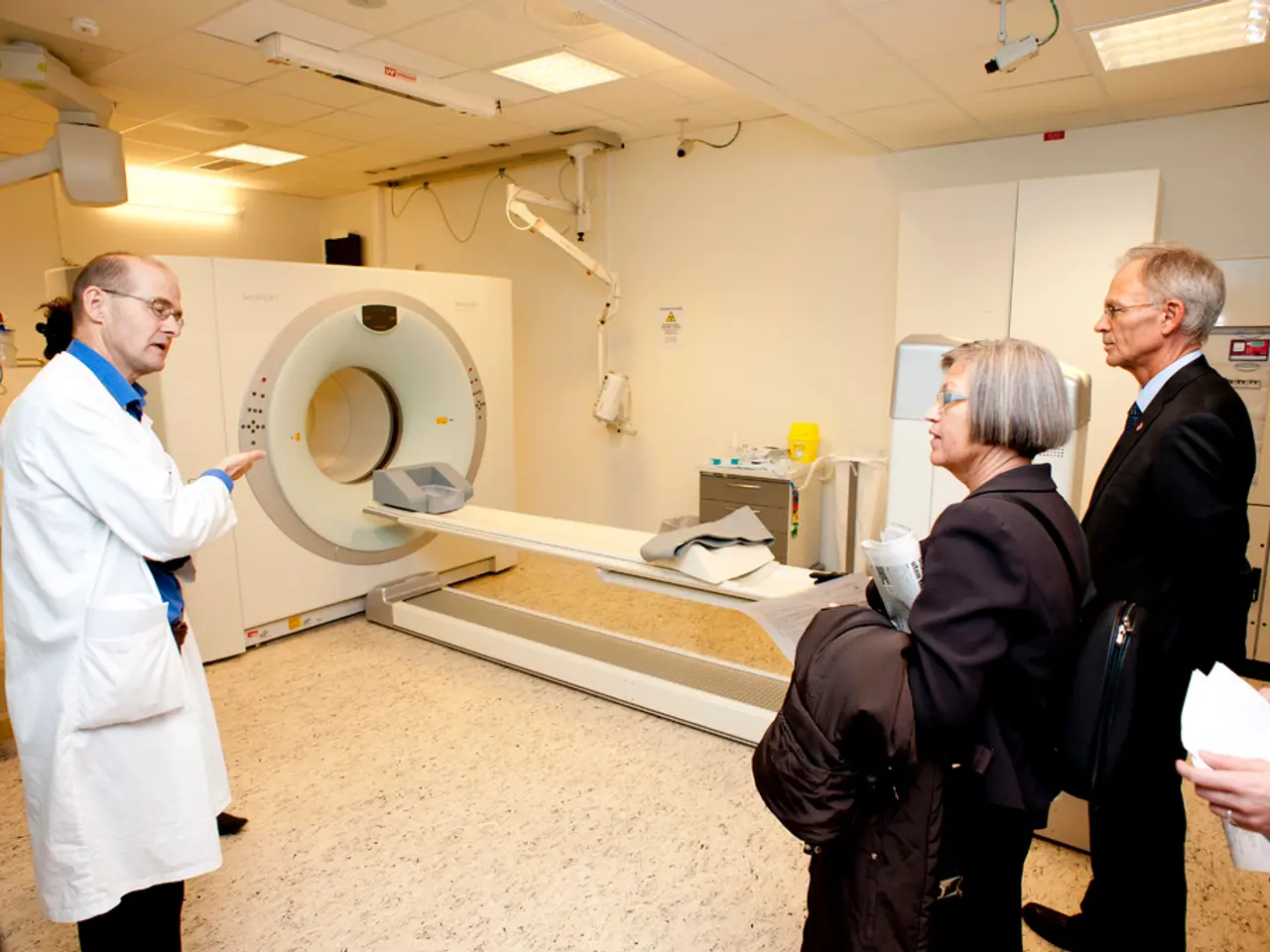Reinforces Leadership with Notable Expertise: Renowned Scientific Advisors and Board Members Join Dxcover's Ranks
Dxcover Strengthens Scientific Advisory Board and Board of Directors
Dxcover, a pioneering diagnostics company, has announced significant expansions to its Scientific Advisory Board (SAB) and Board of Directors. The new appointments will play a crucial role in expanding access to Dxcover's platform, broadening its diagnostic menu, pursuing regulatory milestones, and delivering the technology into the hands of physicians and their patients globally.
New Members of the Scientific Advisory Board
- Professor Katy Peters MD PhD, a renowned neuro-oncology and clinical trial design expert from Duke University Medical Center, has joined the SAB. Her deep knowledge of brain cancer care pathways and translational research will be invaluable to the board.
- Professor Emma Crosbie MBChB(Hons) PhD MRCOG, a gynaecological oncology expert from The University of Manchester, has also been appointed. She specializes in early detection and prevention of endometrial and ovarian cancers, with extensive experience in clinical trials and biomarker research supporting early detection strategies.
- Professor William E. Fisher MD FACS from Baylor College of Medicine and Professor Paul Brennan MB BChir FRCS(Ed) PhD from the University of Edinburgh, both pancreatic and brain cancer diagnostics experts respectively, are already members of the SAB.
- The third member of the SAB, while not explicitly named in the announcement, is a clinical oncology and neurology expert, bringing additional expertise to the board.
Strengthening the Board of Directors
Dxcover's Board of Directors has also been bolstered with key figures who bring a wealth of experience in diagnostics, biotech commercialization, and clinical medical research.
- Professor David Onions, an investor director representing Norcliffe Capital Limited, brings extensive experience in growing and commercializing life sciences and biotech companies.
- Dr Stephen Little, a non-executive diagnostics expert, has a strong background in the diagnostics industry. He is the founder and former CEO of DxS (sold to Qiagen), former R&D Manager at AstraZeneca Diagnostics, and currently Vice Chairman at Yourgene Health.
- Dr. Luke Pike MD DPhil, a radiation oncologist specializing in CNS malignancies from Memorial Sloan Kettering Cancer Center, is already a member of the Board of Directors.
- Dr Paul Brennan, a brain cancer diagnostics expert from the University of Edinburgh, is also a member of the Board of Directors, providing clinical trials and research expertise in neurosurgery.
Experienced Leadership for Dxcover's Growth
In addition to the new appointments, Dxcover has also appointed two new Non-Executive Directors for its US expansion and revenue-stage growth. Marc Jones, a seasoned executive with extensive experience in diagnostics, software, and AI-powered platforms, and Stacy Chick, an experienced global commercial life sciences executive, will provide strategic insights into global market access, reimbursement, and commercial scaling.
Jones, previously a CEO of Altoida, has a track record of driving FDA-cleared and CE-marked products through development, approval, and commercial scale-up. Chick, who previously led area sales, operations, analytics, and market access teams at Sanofi, was the Chief Commercial Officer for Inivata (acquired by NeoGenomics) and Kiyatec. She has successfully transitioned diagnostic innovations from research to commercial stage, developed markets, built commercial operations, and scaled revenues at optimal reimbursement rates.
Professor Matthew J. Baker, CEO and inventor of Dxcover, expressed his excitement about the new appointments, stating, "The new scientific and commercial leaders will be instrumental in expanding access to Dxcover's platform, broadening its diagnostic menu, pursuing regulatory milestones, and delivering the technology into the hands of physicians and their patients globally."
[1] Source: Company Press Release [2] Source: BioSpace [3] Source: FierceBiotech [4] Source: MedCity News
- The health tech industry just witnessed significant strengthening as Dxcover appoints Professor Katy Peters MD PhD, a neuro-oncology and clinical trial expert, to its Scientific Advisory Board (SAB).
- As part of Dxcover's board expansion, Dr. Stephen Little, a diagnostics industry veteran and founder of DxS, has been appointed as a non-executive director.
- Digital health is on the rise with Dxcover's announcement of Professor Emma Crosbie MBChB(Hons) PhD MRCOG, a gynaecological oncology expert focusing on early detection and prevention of endometrial and ovarian cancers, joining the SAB.
- The finance sector will be closely watching Dxcover's growth as they bring on Marc Jones, a seasoned executive with a track record in diagnostics, software, and AI-powered platforms, to oversee their US expansion.
- The medical-conditions space will benefit from Dxcover's technology as they pursue regulatory milestones and deliver diagnostic solutions to physicians and patients across the globe, thanks to their recent appointments.
- Dxcover's foray into artificial intelligence will likely impact the health-and-wellness industry as they leverage technology to advance diagnostic tools, with the support of their expanded Scientific Advisory Board and Board of Directors.








